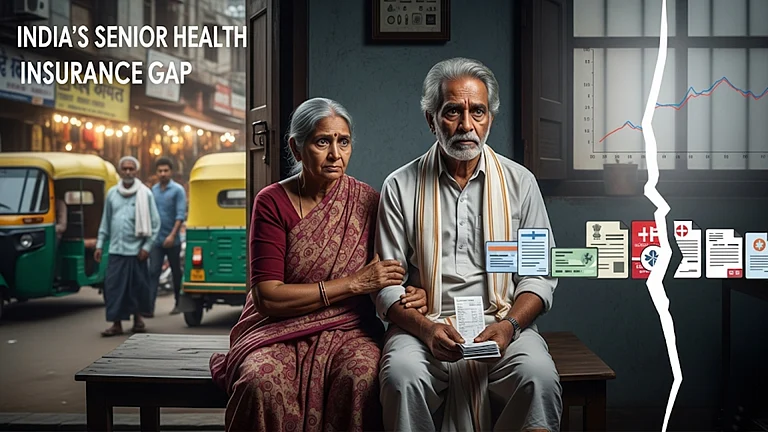Recently, cashless claim approvals were suspended by some at some hospitals. Even when temporary, this can leave patients and families scrambling at the worst possible time. And it’s not just network suspensions; individual cashless claims can get rejected too, often leaving policyholders frustrated. It is important to know what your recourse can be.
Health Insurance: Cashless Claim Denied? Here's What You Can Do Next
Cashless claims can get rejected for many reasons, for instance, when the coverage is inadequate, the illness itself is not covered under the policy, or when the insurer has reservations based on the documents or reports submitted by the hospital. What do you do when faced with such a situation?
For most people, the biggest comfort in having health insurance is the thought that if something goes wrong, money will not come in the way of getting treatment. The idea of a cashless claim, where the hospital directly settles with the insurer, adds to that sense of security. But that system does not always work as expected.
Recently, Niva Bupa had suspended cashless approvals at Max hospitals. The decision was rolled back later, but for those who had hospitalisations in the middle of that period, it meant making arrangements on their own. It is not the first such instance, and it won't be the last.
Cashless approvals sometimes hit roadblocks, leaving patients and their families confused about what to do next.
When cashless approvals get denied or rejected, it is not always about hospital tie-ups. Even when the network remains active, cashless requests can get declined at the hospital desk.
In one widely shared case on social media, a policyholder complained that Care Health refused a small cashless claim of around Rs 10,000, despite him paying a premium of Rs 65,000 annually for a cover worth Rs 2 crore. His frustration was clear, if a modest claim couldn't pass, what use was the large sum insured?
The insurer later said the claim hadn't been rejected, only shifted to reimbursement processing, but by then the episode had already sparked anger among other customers who had faced similar situations.
So, why do these denials happen?
According to Sunny Bhatia, Senior Vice President, Retail at Turtlemint, the most common reason is that the treatment sought is not covered by the policy.
Sometimes, the insurer also raises queries on the medical reports or documents submitted by the hospital. "If the illness itself is not included in the policy, or if the documents are not sufficient, cashless approval can be stopped," he says.
What can be done when the cashless claims get rejected?
For the patient, though, explanations don't help at that moment. The priority is to start treatment without delay. If cashless is denied, the first thing to do is pay the amount the hospital asks for as an advance. That way, treatment is not held up. After that, the insured can either appeal with additional documents or switch to filing a reimbursement claim.
It is important to remember that a cashless rejection doesn't always mean the claim is over.
The insurer's decision can be contested with clarifications from the doctor or additional test reports. If the insurer still doesn't approve cashless, you can go ahead with reimbursement.
Says Bhatia, "Policyholders should either file a reimbursement claim or resubmit the required documents along with a doctor's clarification for further review as per their insurance policy terms and conditions. "
For reimbursement to work smoothly, paperwork becomes critical. Policyholders should keep every diagnostic report, the discharge summary, all original bills, prescriptions, and even older medical history if relevant. "Most insurers give around 30 days from discharge to submit the reimbursement claim," says Bhatia. There can be exceptions in extraordinary situations, but that's rare.
These issues explain why reactions to insurance are often polarised. On social media, some people share bitter experiences of denials, while others point out that their claims have been settled quickly and without fuss. Much of it comes down to the specific policy bought and the clarity around what it covers.
Still, when a denial happens at the hospital counter, it can put the patient and their family in a frenzy. To avoid panic, it helps to be prepared:
Check in advance whether the hospital is in your insurer's network
Know what documents are required for reimbursement
Be aware that even if cashless doesn't work, reimbursement is a valid route
As Bhatia explains, "The list of must-have documents includes all diagnostic reports, the discharge summary, and all original bills, including those for medications."
Health insurance is supposed to ease stress, not add to it. But in those moments when the cashless system gets rejected, knowing the practical steps, mainly making the interim payment, preserving documents, and filing for reimbursement, can prevent an emergency from turning into a financial crisis.


